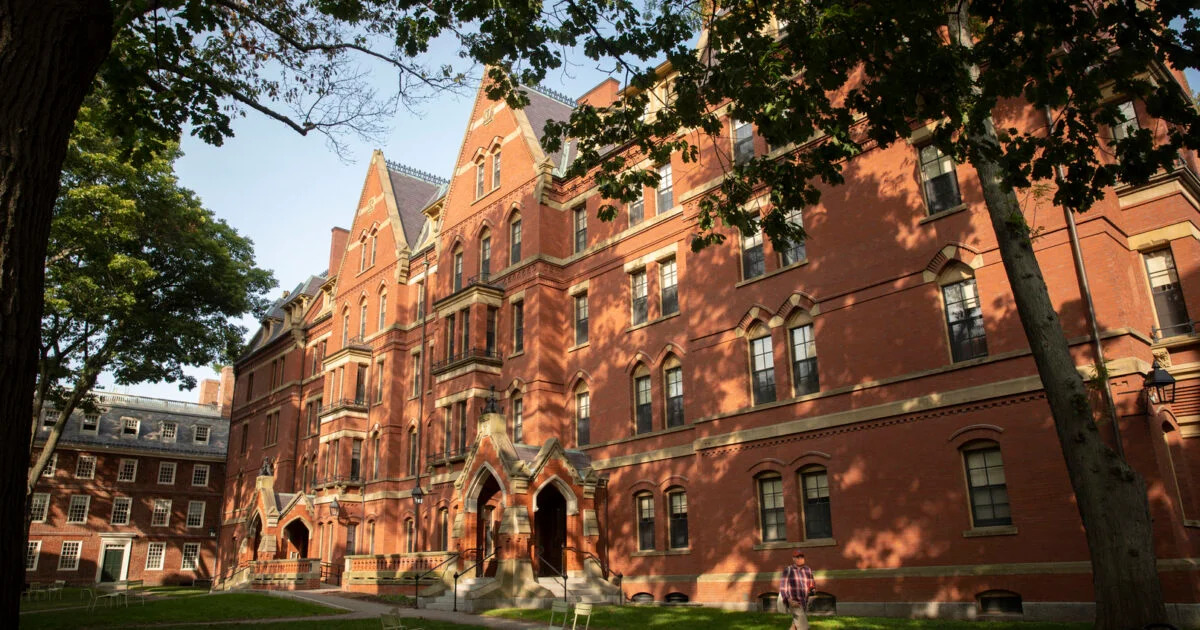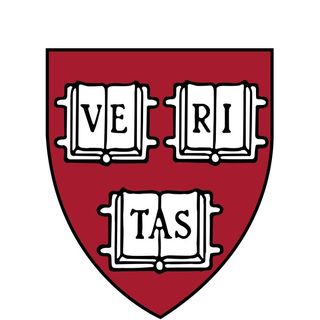University Rankings
Discover Harvard University's global and national rankings
Overview of Harvard University's Rankings
Harvard University, founded in 1636, is one of the world's most prestigious institutions of higher education. Its consistent top-tier rankings reflect excellence in teaching, research, and global impact. These rankings are compiled by various organizations using methodologies that evaluate factors like academic reputation, employer reputation, faculty-to-student ratios, citations per faculty, and international outlook. Below, we explore Harvard's performance across major ranking systems, subject areas, and historical trends.
Global University Rankings
Harvard frequently tops or ranks near the top in global university rankings, underscoring its leadership in higher education. Here's a breakdown of its positions in prominent international assessments:
- QS World University Rankings (2024): Harvard secured the 4th position globally. This ranking emphasizes academic and employer reputation (40% weight), alongside faculty/student ratio and international faculty/student ratios. Harvard's score of 100 in academic reputation highlights its enduring prestige.
- Times Higher Education (THE) World University Rankings (2024): Ranked 3rd worldwide. THE's methodology includes teaching (30%), research environment (30%), research quality (30%), international outlook (7.5%), and industry (2.5%). Harvard excels in research quality, with a perfect score in citations impact.
- Academic Ranking of World Universities (ARWU, Shanghai Ranking) 2023: Harvard claimed the 1st spot for the 22nd consecutive year. ARWU focuses on research output, including Nobel and Fields Medal winners, highly cited researchers, and publications in Nature and Science. Harvard's dominance here stems from its 161 Nobel laureates affiliated with the university.
- U.S. News & World Report Best Global Universities (2023-2024): 3rd globally, based on 13 indicators like global research reputation and publications. Harvard leads in fields such as social sciences and humanities.
These rankings demonstrate Harvard's balanced excellence, though methodologies differ—QS prioritizes reputation, while ARWU emphasizes bibliometrics. Over the past decade, Harvard has rarely fallen below the top 5 globally, solidifying its status as an Ivy League powerhouse.
National Rankings in the United States
Within the U.S., Harvard consistently ranks at the pinnacle, particularly in undergraduate and graduate programs. National rankings often focus on selectivity, resources, and outcomes for students.
- U.S. News & World Report National Universities (2024): Tied for 3rd place among national universities. This ranking assesses graduation rates, faculty resources, student selectivity, financial resources, and alumni giving. Harvard's endowment of over $50 billion supports unparalleled resources, contributing to its high scores.
- Forbes America's Top Colleges (2023): Ranked 2nd, evaluating return on investment through alumni salaries, debt levels, and graduation rates. Harvard graduates boast median mid-career salaries exceeding $150,000.
- Niche College Rankings (2024): 1st overall in the U.S., based on student reviews, academics, value, and campus life. Harvard scores A+ in nearly all categories, including diversity and athletics.
- Wall Street Journal/College Pulse (2024): 5th for value, factoring in graduation outcomes and student satisfaction. Despite high tuition, Harvard's financial aid makes it accessible for many.
Harvard's national standing is bolstered by its acceptance rate of under 4%, ensuring a highly talented student body. It also ranks highly in public perception surveys, where it's often named the "best" U.S. university.
Subject-Specific Rankings
Harvard's strength lies in its depth across disciplines. It dominates in numerous subjects, particularly in social sciences, life sciences, and humanities. Below is a table summarizing key subject rankings from QS World University Rankings by Subject (2024):
| Subject | Global Rank | Key Strengths |
|---|---|---|
| Law | 1st | Harvard Law School is renowned for its clinics, faculty like Laurence Tribe, and alumni including U.S. presidents. |
| Medicine | 1st | Harvard Medical School leads in research funding ($1.5B+ annually) and innovations like CRISPR advancements. |
| Business & Management | 1st | Harvard Business School's case method and MBA program produce global CEOs; ranked #1 by Financial Times. |
| Economics & Econometrics | 2nd | Faculty include Nobel winners like Amartya Sen; strong in policy and behavioral economics. |
| Computer Science | 8th | Excellence in AI and data science, with ties to MIT via collaborations. |
| Engineering - Electrical & Electronic | 15th | Focus on bioengineering and robotics; SEAS (School of Engineering) drives innovation. |
| Arts & Humanities | 1st | World-class libraries and museums; leads in history, philosophy, and literature. |
| Life Sciences & Medicine | 1st | Broad impact in biology, psychology, and public health via Harvard T.H. Chan School. |
In THE Subject Rankings (2024), Harvard tops or is in the top 5 for 10 out of 11 broad subjects, including clinical and health (1st) and psychology (1st). This versatility attracts interdisciplinary scholars and funds over $1 billion in annual research grants.
Historical Ranking Trends
Harvard's ranking history is a testament to its adaptability. In the early 20th century, it was already elite, but post-WWII expansions in research propelled it to the forefront.
- 1900-1950: Dominated U.S. rankings; first to establish graduate programs rivaling Europe's.
- 1950-1980: Rose in global metrics with Cold War-era funding; ARWU predecessor rankings placed it #1 by 1970s.
- 1980-2000: Maintained top spots amid increasing competition from Stanford and MIT; introduced need-blind admissions.
- 2000-Present: Consistent #1-5 globally. Despite slight dips (e.g., QS #4 in 2024 from #2 in 2022), it rebounded via diversity initiatives and tech integrations. In 2023, it overtook Oxford in THE rankings after a decade.
Trends show resilience: During economic downturns, Harvard's endowment buffered investments in faculty and facilities, unlike peers facing budget cuts.
Factors Contributing to Harvard's High Rankings
Several elements underpin Harvard's elite status:
- World-Renowned Faculty: Over 2,400 professors, including 48 Nobel laureates, 48 Pulitzer winners, and numerous MacArthur "genius" grantees. The student-faculty ratio of 7:1 enables personalized mentorship.
- Research Output and Impact: Harvard publishes over 20,000 papers annually, with high citation rates. Initiatives like the Broad Institute (with MIT) advance genomics and AI.
- Alumni Network: 400,000+ living alumni, including 8 U.S. presidents, 160 Nobelists, and leaders like Bill Gates (dropout but affiliate). This network boosts employer reputation scores.
- Resources and Facilities: The largest academic library system (20M+ volumes), state-of-the-art labs, and global campuses (e.g., in Dubai). Financial aid covers 100% demonstrated need without loans.
- International Diversity: 25% international students from 150+ countries; scores highly in global outlook metrics.
- Innovation and Employability: 95% employment rate within six months of graduation; partnerships with tech giants like Google enhance outcomes.
Critics note that rankings can overlook accessibility—Harvard's $80,000+ annual cost is mitigated by aid, but socioeconomic diversity lags. Nonetheless, its holistic approach to education fosters critical thinking and leadership.
Comparisons and Notable Achievements
Compared to peers like Stanford (often #2 in innovation) or Oxford (strong in humanities), Harvard excels in breadth. It leads in producing U.S. Supreme Court justices (10 alumni) and Fortune 500 CEOs (more than any other school).
In sustainability rankings, Harvard is top 10 globally (QS 2024), with carbon-neutral goals by 2050. For social impact, it's #1 in the Center for World University Rankings for contributions to SDGs like quality education and reduced inequalities.
Harvard's rankings aren't just numbers—they reflect a legacy of shaping global leaders. Prospective students should consider fit beyond prestige, but its consistent excellence makes it a benchmark for higher education worldwide.
Still have questions about Harvard University?
Our expert counselors are here to help you with any queries about studying at Harvard University.
Contact Us

